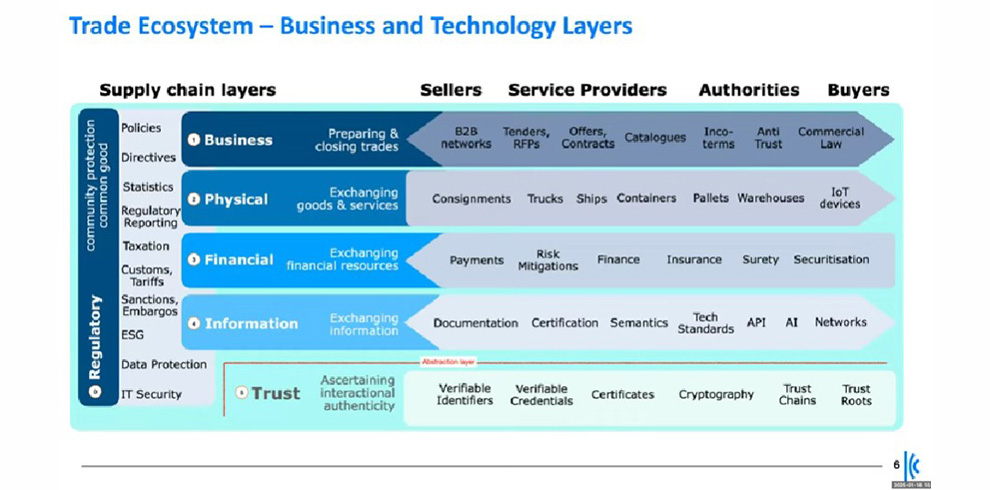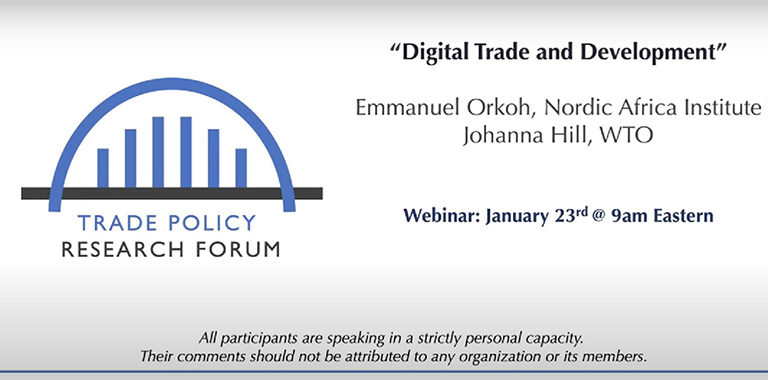Latest news
-
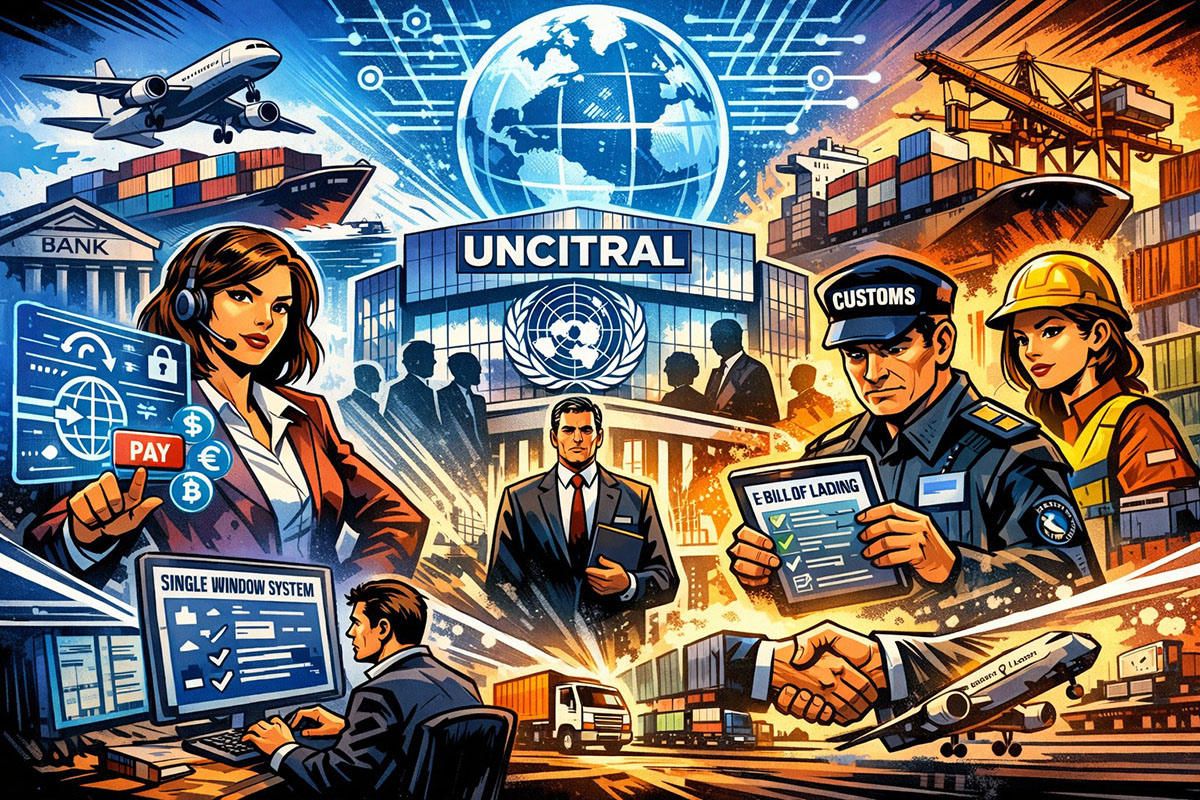
Inside UNCITRAL’s Push for Digital Payments and Paperless Trade
As global trade becomes increasingly digital, legal systems are racing to keep up. Payments are faster, documents are electronic, and supply chains span jurisdictions with very different rules. Against this… Read more
-

To Policy Makers: Governing Distributed Ledger Technology in Trade
Digital trade is evolving rapidly, and Distributed Ledger Technology (DLT) is increasingly presented as a solution for improving transparency, efficiency, and trust in commercial transactions. From trade documents and supply… Read more
-
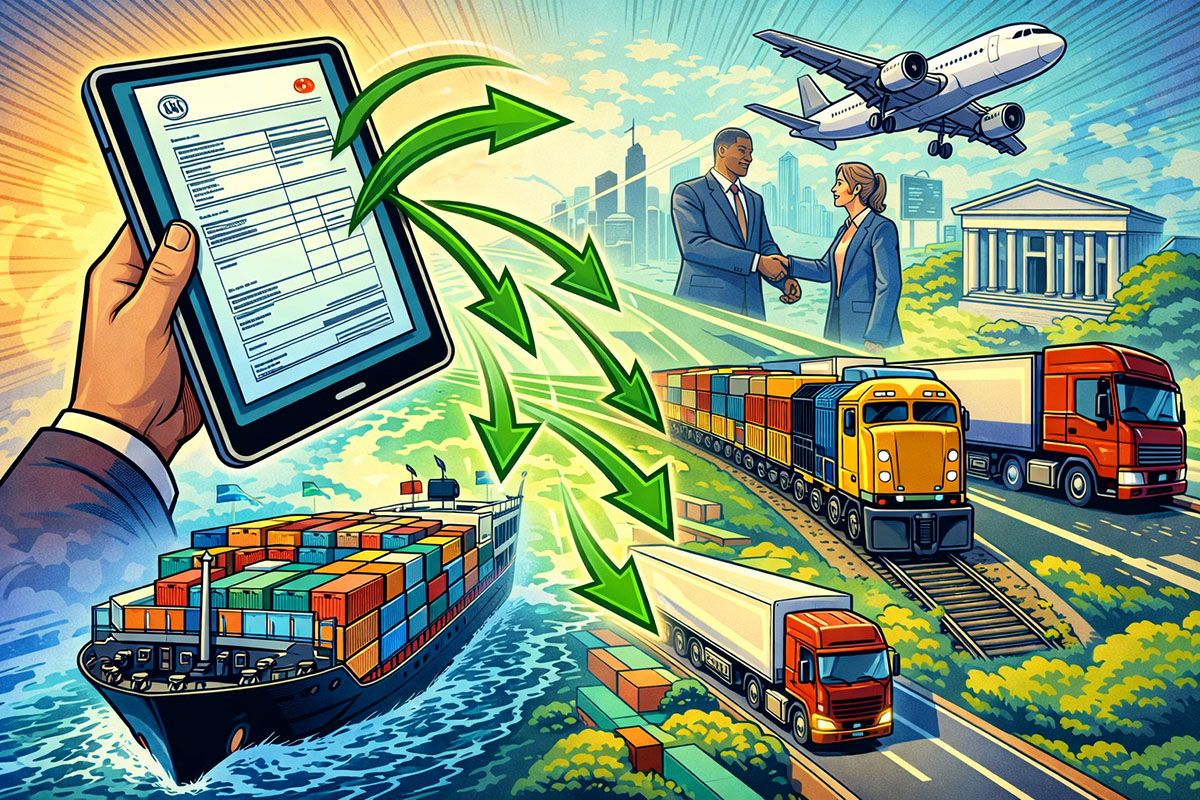
United Nations Adopts New Convention Enabling Digital and Flexible Use of Cargo Documents
In December 2025, the United Nations General Assembly adopted the United Nations Convention on Negotiable Cargo Documents (NCDs), developed under the auspices of UNCITRAL and finalized in July 2025. The… Read more
-

A New Framework for Digital Trade: The Digital Trade Promotion Act of 2025
The Digital Trade Promotion Act of 2025, currently under consideration in the United States Congress, establishes a comprehensive legal framework authorizing the President to negotiate and conclude standalone digital trade… Read more
-

India Introduces the 2025 Digital Personal Data Protection Rules: A New Era for Data Governance
India has formally adopted the Digital Personal Data Protection (DPDP) Rules, 2025, a comprehensive set of regulations implementing the Digital Personal Data Protection Act, 2023. The rules mark a significant… Read more
-
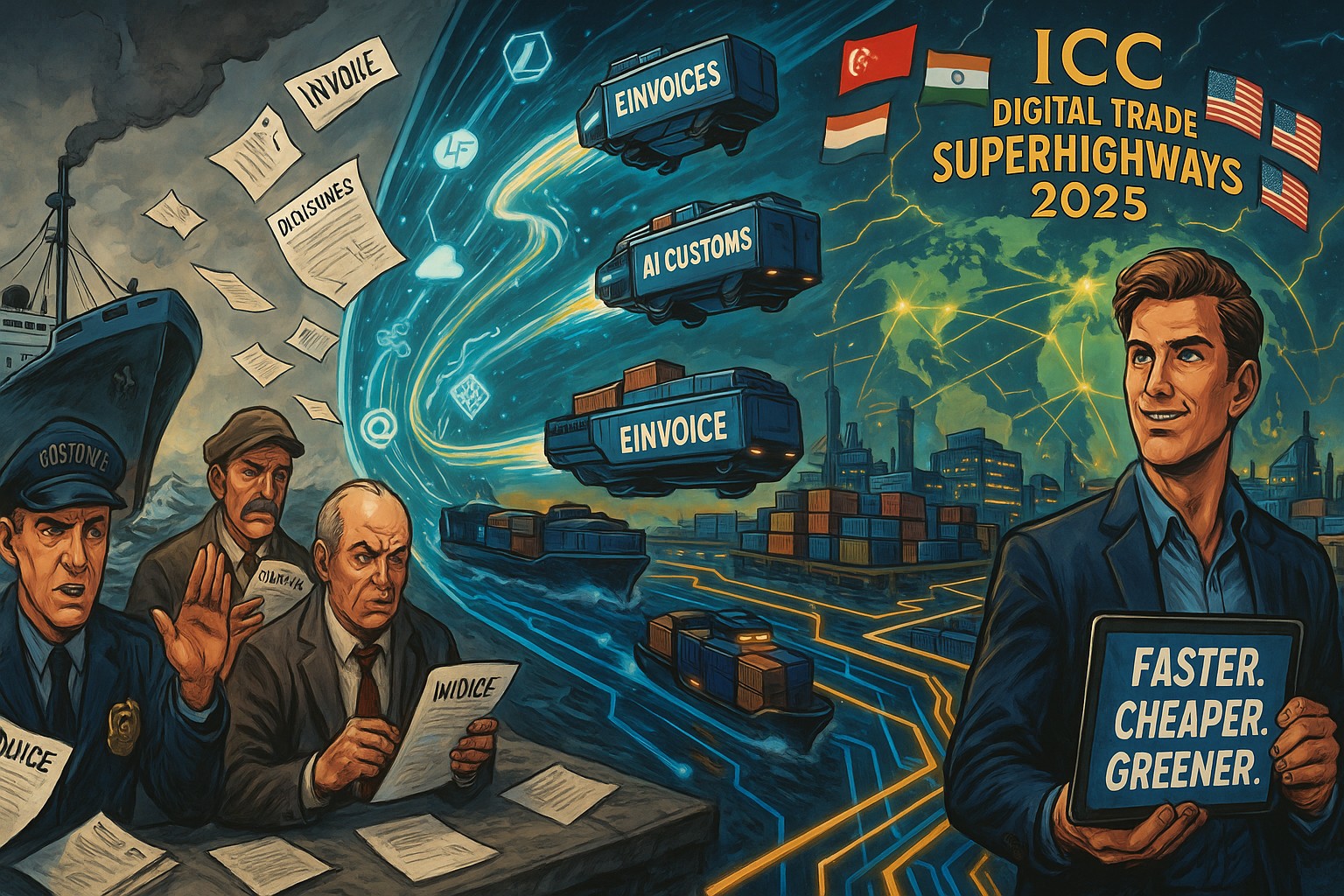
Next-Generation Trade Corridors: How Digital Trade Superhighways Are Taking Shape
The global trading system stands at a crossroads. The International Chamber of Commerce (ICC United Kingdom) has published its 2025 report “Next-generation trade corridors — Building digital trade superhighways”, calling… Read more
-

The Real Barrier to Digital Trade Is Not Technology — It’s Trust
In 2025, most international trade flows still rely on paper documents, even though the technological and legal solutions for paperless trade already exist. The real barrier is no longer technology… Read more
-

Thailand Adopts Paperless Trade Treaty – A New Step in Regional Digitalization
Bangkok, 17 October 2025 — Thailand has officially deposited its instrument of accession to the Framework Agreement on Facilitation of Cross-border Paperless Trade in Asia and the Pacific (CPTA) with… Read more
-
Global E-Commerce Agreement Could Add Up to USD 8.7 Trillion to the World Economy
Digital trade has grown nearly twice as fast as goods trade over the past decade and is becoming a key driver of global growth. This conclusion comes from a WTO… Read more
Position Papers
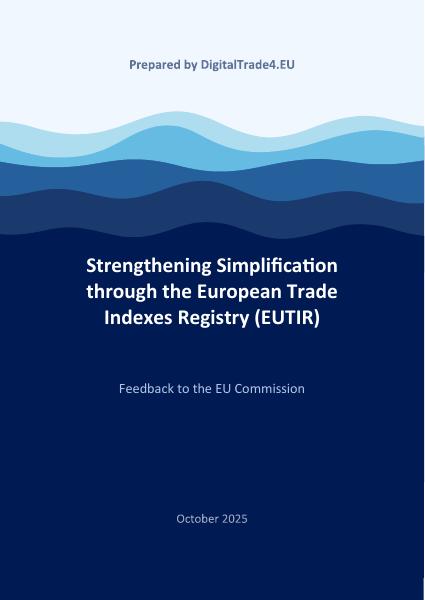
Strengthening the Digital Omnibus through unified trust, interoperability, and legal certainty across digital trade and sustainability… [Read more]
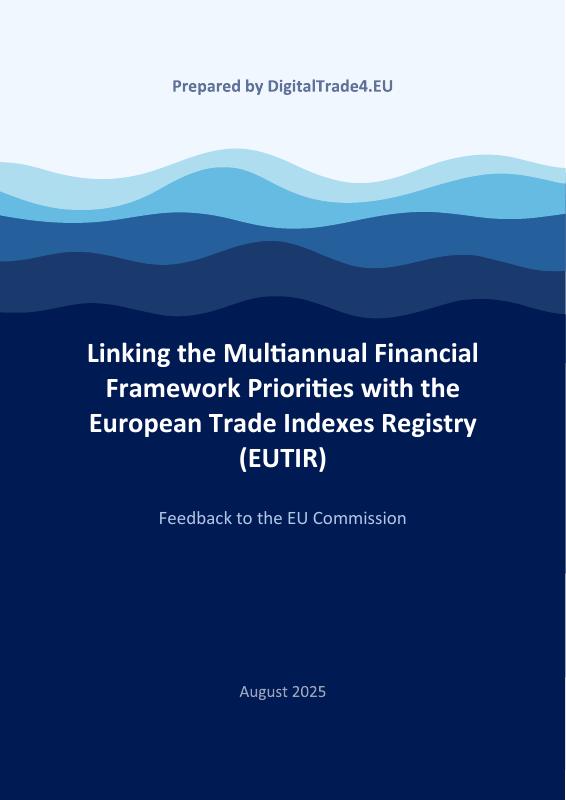
Connecting digital trade, sustainability, and crisis readiness through a single trust framework… [Read more]
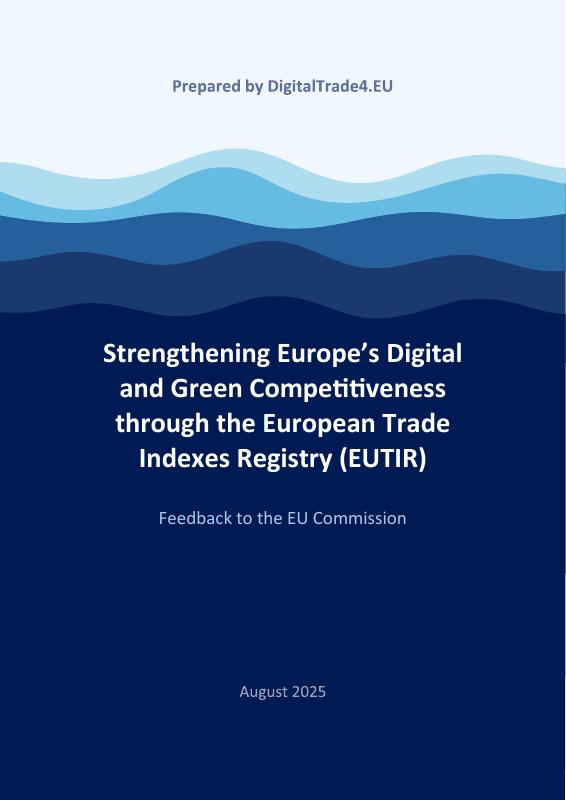
A vision for modern trade governance that empowers people, creativity, and sustainability… [Read more]
Interesting videos

Digitalising Trade Finance for Europe’s Future
Shared podcast discusses a European initiative to accelerate the digitalisation of trade finance, focusing on the challenges faced by small and medium-sized enterprises due to the significant financial gap in the current system. It highlights the benefits of digitalisation, such as reduced errors, increased efficiency, and enhanced security.
The discussion emphasizes the need for legal harmonization and international standards, supported by the new European Union eIDAS 2.0 regulation and recent French law adopting UNCITRAL’s Model Law on Electronic Transferable Records (MLETR).
The role of a European Union Trade Services Governance
Ensure the existence of secure technological solutions accessible to the whole ecosystem, especially banks and businesses.
Foster the European TradeTech ecosystem, the solutions of which are often mature and can help achieve the goals of the reform.
Support the creation of a conducive framework for digitalisation of international trade documents at European Union level, notably when it comes to certification and management of open and interoperable ledgers.
Ensure that technical standards and requirements are clear and normative, as with PSD3 / PSR on payments, eIDAS 2 on digital identity and trust services, or e-FTI on electronic information on the transport of goods.

Technology and EU Legislation
eFTI Regulation
Digitalising the exchange of freight-related information between businesses and public authorities. It focuses on making data sharing more efficient, reducing paperwork, and improving communication in the transport and logistics sectors.
[Read more]
eIDAS 2.0 Regulation
The regulation introduces a European Digital Identity (EUDI), allowing EU citizens, residents, and businesses to have a secure and universally accepted digital identity. This can be used for identification and authentication in a range of services, such as trade, banking, healthcare, education, and more.
[Read more]
PSD3 & PSR Regulation
The third Payment Services Directive (PSD3) and the Payment Services Regulation (PSR) are new proposals from the European Commission that significantly alter the European payments market framework. These changes will affect banks, fintechs, payment service providers, and customers both legally and operationally.
[Read more]
Drive Digital Trade Innovation
110
Full Partners
Trade Associations, Logistics Providers, Shipping Lines, Banks and Insurances, Technology Innovators, Competent Authorities, etc.
62
from European Union countries
France, Belgium, Netherlands, Austria, Estonia, Finland, Italy, Latvia, Spain, Germany, Sweden, Poland, Luxembourg, Lithuania, Slovenia, Denmark, Bulgaria
48
from non-EU countries
Norway, United Kingdom, Switzerland, Montenegro, Japan, Singapore, Hong Kong, Australia, New Zealand, India, Nepal, Canada, United States of America, Cameroon, Morocco, Egypt, Kenya, Pakistan, Nigeria, Brazil, Uzbekistan, Turkey, Ukraine, Uganda
Join with our network DigitalTrade4.EU to be part of a community shaping the future of European supply chains through innovation and collaboration.


